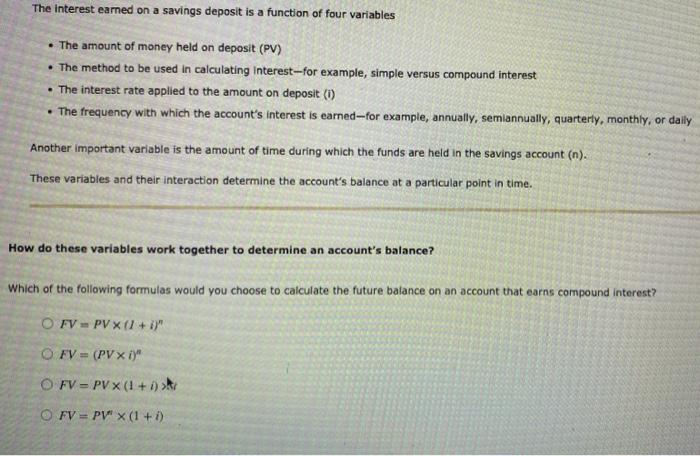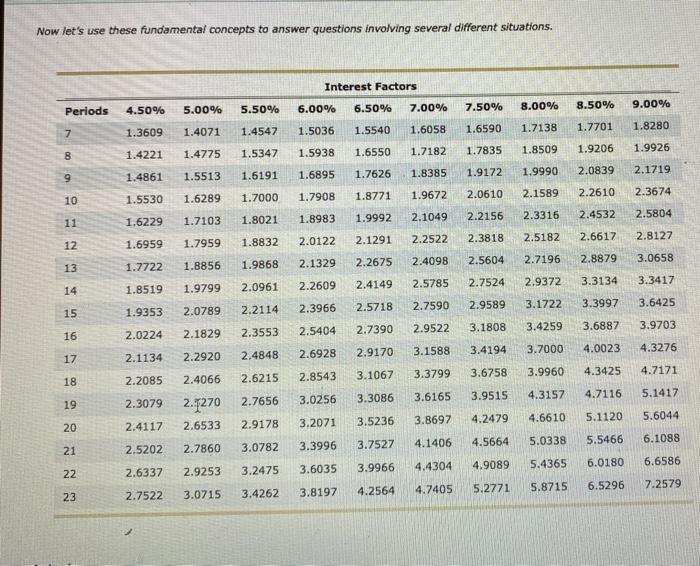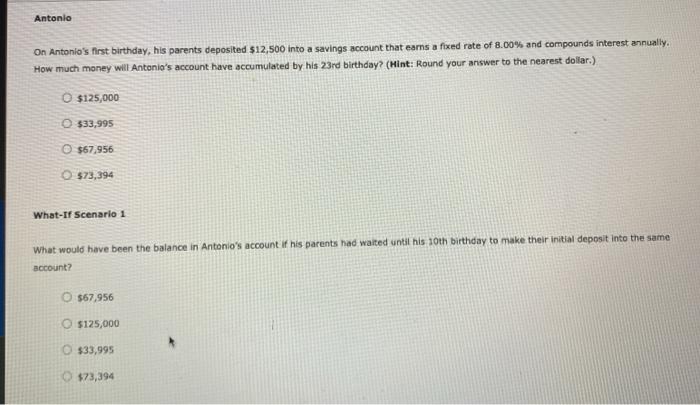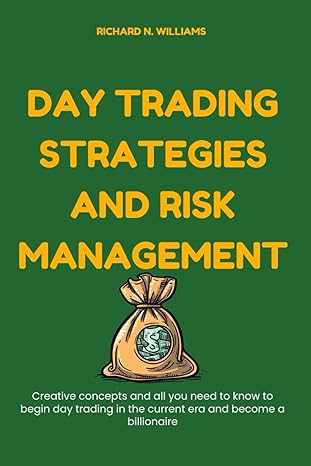The Interest earned on a savings deposit is a function of four variables The amount of money held on deposit (PV) . The method to be used in calculating Interest--for example, simple versus compound interest The interest rate applied to the amount on deposit (1) The frequency with which the account's interest is earned--for example, annually, semiannually, quarterly, monthly, or daily Another important variable is the amount of time during which the funds are held in the savings account (n). These variables and their interaction determine the account's balance at a particular point in time. How do these variables work together to determine an account's balance? Which of the following formulas would you choose to calculate the future balance on an account that earns compound interest? OFV - PV x (1 + i)" O FV = (PV x 1)" O FV = PV X (1+0) OFV = PV" x (1 + i) Now let's use these fundamental concepts to answer questions involving several different situations. Interest Factors Periods 4.50% 5.00% 5.50% 6.00% 6.50% 7.00% 7.50% 8.00% 9.00% 8.50% 7 1.3609 1.4071 1.5036 1.4547 1.5540 1.7701 1.6058 1.7138 1.8280 1.6590 1.5347 1.5938 1.7182 8 1.4775 1.6550 1.7835 1.8509 1.4221 1.9206 1.9926 1.5513 1.6191 1.4861 1.6895 1.7626 1.8385 9 1.9172 1.9990 2.0839 2.1719 10 1.5530 1.7000 2.3674 1.6289 1.790B 1.9672 2.1589 2.2610 2.0610 1.8771 1.9992 11 1.7103 1.8021 2.2156 2.5804 1.6229 1.8983 2.1049 2.3316 2.4532 1.7959 2.1291 2.2522 2.6617 1.8832 2.3818 2.8127 12 1.6959 2.0122 2.5182 2.2675 2.5604 2.1329 2.4098 2.7196 2.8879 13 1.8856 3.0658 1.7722 1.9868 2.5785 2.7524 2.9372 3.3417 2.2609 2.4149 3.3134 14 1.8519 1.9799 2.0961 2.5718 2.7590 2.9589 3.1722 2.3966 3.3997 3.6425 15 2.2114 1.9353 2.0789 3.4259 2.9522 3.1808 3.6887 3.9703 2.7390 16 2.0224 2.1829 2.3553 2.5404 3.4194 2.9170 3.7000 2.1134 2.6928 3.1588 4.0023 4.3276 17 2.2920 2.4848 3.1067 3.3799 3.6758 3.9960 4.3425 4.7171 18 2.8543 2.2085 2.4066 2.6215 3.6165 3.9515 4.3157 3.3086 4.7116 5.1417 19 2.3079 3.0256 2.7656 2.1270 2.6533 3.5236 3.8697 4.2479 4.6610 5.1120 5.6044 2.9178 3.2071 20 2.4117 3.7527 4.1406 5.0338 5.5466 2.7860 4.5664 6.1088 21 2.5202 3.0782 3.3996 4.9089 5.4365 6.0180 6.6586 2.6337 3.9966 4.4304 22 2.9253 3.2475 3.6035 5.2771 4.2564 5.8715 6.5296 2.7522 4.7405 7.2579 23 3.0715 3.8197 3.4262 Antonio On Antonio's first birthday, his parents deposited $12,500 into a savings account that earns a fixed rate of 8.00% and compounds interest annually. How much money will Antonio's account have accumulated by his 23rd birthday? (Hint: Round your answer to the nearest dollar.) $125,000 $33,995 O $67,956 573,394 What-If Scenario 1 What would have been the balance in Antonio's account if his parents had waited until his 10th birthday to make their initial deposit into the same account? O $67,956 $125,000 O $33,995 $73,394 What If Scenario 2 I Antonio's parents wanted to accumulate an account balance of $35,000 by his 23rd birthday, then how much should they have placed on deposit on his first birthday? $6,438 O $3,500 O $12,870 55,961










